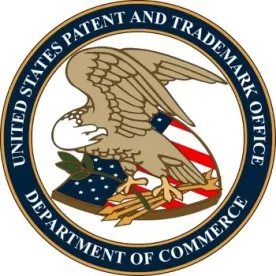On July 2, 2019, the U.S. Patent and Trademark Office (USPTO) published a rule that will have a major impact on foreign (non-U.S. domiciled) trademark applicants, registrants, and parties in inter partes proceedings in the Trademark Trial and Appeal Board (TTAB) when it becomes effective on August 3, 2019. In essence, all such applicants and registrants, including parties in the TTAB, will no longer be able to act on their own behalf (“pro se”) but will now need to be represented before the USPTO by a U.S. attorney admitted to the bar in any U.S. state, commonwealth, territory, or the District of Columbia, while at the same time Canadian counsel can no longer be primary counsel although they can continue as secondary counsel for Canadian clients. Moreover, such U.S. attorneys must submit proof to the USPTO that they are admitted and are in good standing. This rule tightens the current representation practice and hopes to stop the current instances of the unlicensed practice of law before the USPTO, including use of fraudulent “U.S.” appearing contact information (or contact information copied from legitimate U.S. law firms), or false pro se claims by foreign companies and individuals. Failure to comply with this rule may affect the validity of the trademark applications, registrations, and proceedings targeted.
Purpose of the Rule
The USPTO has stated that it wishes to improve the quality of the federal trademark register, stop the unlicensed practice of law before the USPTO, and assist in regulatory compliance. The USPTO maintains that as a result of the current status quo, “increasing numbers of foreign applicants are likely receiving inaccurate or no information about the legal requirements for trademark registration in the U.S., such as the standards for use of a mark in commerce, who can properly aver to matters and sign for the mark owner, or even who the true owner of the mark is under U.S. law.” This situation is exacerbated by a growing surge of applications filed by foreign applicants. The USPTO states that many of these foreign applicants appear to be representing themselves pro se, but are actually not (instead being advised incorrectly by foreign attorneys and agents). Moreover, certain foreign filers are fraudulently copying the contact information from current U.S. law firms to circumvent current systems.
Major Changes
Currently, foreign applicants can file and prosecute applications and take other actions in the USPTO directly pro se, or through foreign counsel if they meet certain requirements (at the moment Canadian counsel only are accepted). Of course, they can use U.S. counsel as well.
As of August 3, 2019, all such foreign applicants must hire U.S. counsel to transact business in the USPTO. This old procedure will change even for the Madrid Protocol, the foreign trademark filing treaty, since the Madrid Protocol filing form at the World Intellectual Property Organization (WIPO) eventually will be amended to add a U.S. attorney before filing. There is a “grandfather clause” allowing applicants and registrants who currently have pending applications, registrations, or TTAB proceedings without U.S. counsel to continue, but beyond the next action after August 3, 2019, they will need to do so, and thus, in effect, all files will eventually need U.S. attorney representation. This also applies to directly filed applications, which will receive a filing date, but must eventually be handled by a U.S. attorney.
Coupled with this mandatory representation, the new rule now requires the U.S. attorney to submit his or her bar information. This is to prevent the current practice of providing the USPTO with fraudulent email addresses, street addresses, and fake U.S. telephone numbers to make it appear that the applicant is currently being represented by a U.S. attorney even though it is not. However, no “USPTO trademark bar” registration number, as is done with the patent bar, is currently contemplated.
Canada
Perhaps surprisingly, the reciprocal rights to Canadian agents and attorneys to represent trademark clients as the primary counsel in the USPTO have now been amended. Canadian applicants and registrants must now be represented by U.S. attorneys who must sign all documents as attorneys of record, but Canadian counsel may be listed as secondary counselunder certain circumstances.
Summary
In short, the following changes will become effective on August 3, 2019:
-
All foreign applicants and registrants, and parties in TTAB proceedings, must be represented by a U.S. attorney. If such representations are not immediately filed, the USPTO will issue an office action requesting such appointment be filed. In effect, there will no longer be foreign trademark applicants, registrants, or TTAB parties pro se.
-
All U.S. attorneys representing foreign clients must file proof of bar certification, registration number, and good standing, sooner or later, depending on where the application, registration, or TTAB proceeding is in the process. For all actions after August 3, 2019, this must be done at the same time or face an office action requesting the same.
Foreign trademark owners must seriously consider these significant changes, since they may affect the validity of their current and future U.S. trademark applications and registrations, as well as their pending inter partes matters in the TTAB. Retaining U.S. trademark counsel must be given priority in current practice and strategy immediately.




 />i
/>i

